In order to promote the academic research of artificial intelligence frontier in HUST, the School of Computer Science and Technology held the “Academic Report on Artificial Intelligence Frontier” on June 25, 2018, in the report room E1523 of the new main teaching building. Dr. Kang Zhao, from the University of Electronic Science and Technology, Dr. Peng Chong from Southern Illinois University, and Dr. Wang Jindong from the Institute of Computing, Chinese Academy of Sciences respectively conducted academic reports on machine learning methods and their computer vision applications. They were invited by the professors in the School of Computer Science and Technology, in terms of vice president Sun Guanglu,, and Dr. Li Ao. More than 60 teachers and students participated in the report, and Professor Liu Xianli from the School of Mechanical and Power Engineering also participated in the report.
At first, Professor Sun Guanglu introduced the theme and background of the report, and on behalf of the school, he welcome three reporters to give lectures. Dr. Li Ao presided over the report and introduced the academic achievements of the three reporters. Three reporters separately explained some of their research work published in the top conferences and periodicals of artificial intelligence and answered related questions raised by the audience. A total of more than 20 people asked questions, and the report was under heated discussion.
Dr. Kang Zhao explained the unified model of spectral clustering from the shallower to the deeper. As for problems caused by changes in conditional parameters in the model, such as poor performance, label deviation, and optimal kernel feasible set, methods and models were introduced, in terms of "two-way learning of similarity and clustering", "unified spectral clustering of optimal graphs", "graph-based clustering and semi-supervised classification of self-weighted multi-core learning".
With the title of “Application of Low Rank Model in Data Mining”, Dr. Peng Chong explained the aspects including robust PCA, variance regularized ridge regression, bilateral two-dimensional K-means and matrix completion of recommendation systems. The specific applications of these methods in computer vision and data mining were discussed.
Dr. Wang Jindong gave a systematic explanation of transfer learning. Dr. Wang summarized the transfer learning as “transfer learning uses the existing knowledge in the auxiliary field and quickly constructing the model of the field to be studied”, and highlighted what is transfer learning, the necessity of transfer learning, basic methods of transfer learning, deep transfer learning, and the prospects of transfer learning.
Through the explanations of the three reporters, the teachers and students had a deeper understanding of the latest research progress and high-level research work on machine learning, and inspired new ideas for artificial intelligence research in teachers and students of HUST. The new method also stimulated the enthusiasm of our teachers and students for artificial intelligence academic research.
In recent years, the School of Computer Science and Technology has responded to the call of the State, Heilongjiang Province and HUST to vigorously develop innovative work in the field of artificial intelligence. Based on the research accumulated in the school and the discipline for more than 20 years, it has promoted artificial intelligence and machine learning and the related fields in a solid and in-depth manner. At the same time, the school has also obtained a number of cooperation projects at the national, provincial, ministerial levels, enterprises and institutions related to artificial intelligence technology. In the future, the School of Computer Science and Technology will also continue to promote the development of artificial intelligence technology in various fields of HUST, and carry out relevant frontier research work in order to achieve more outstanding results.
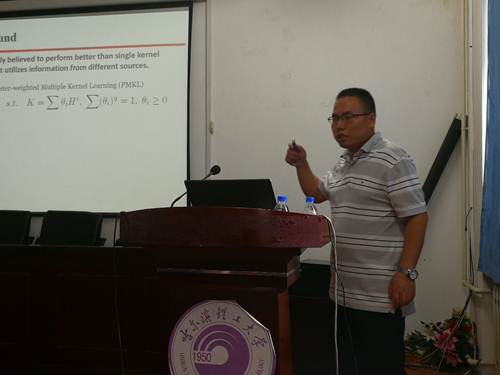
Doctor of the University of Electronic Science and Technology Kang Zhao explaining the multi-core spectral clustering method
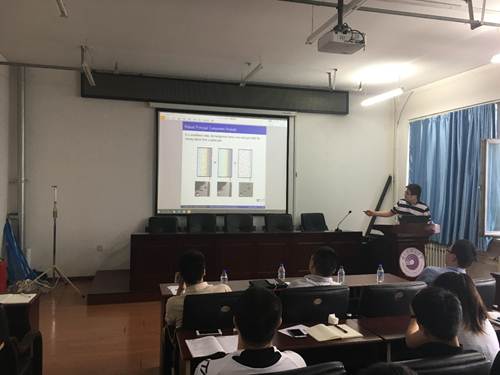
Doctor of Southern Illinois University Peng Chong explaining the low-rank representation model
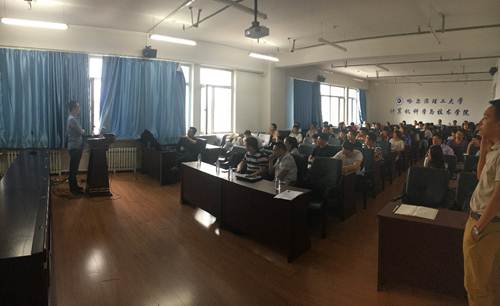
Doctor of the Institute of Computing in Chinese Academy of Sciences Wang Jindong explaining transfer learning
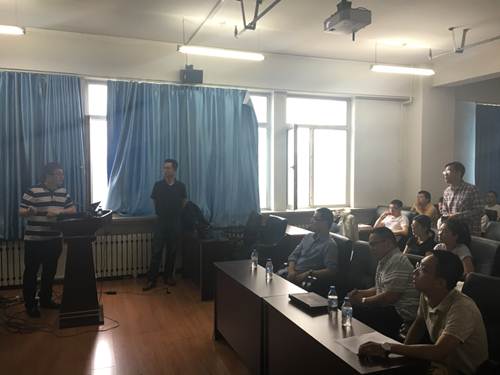
On-site discussion and communication
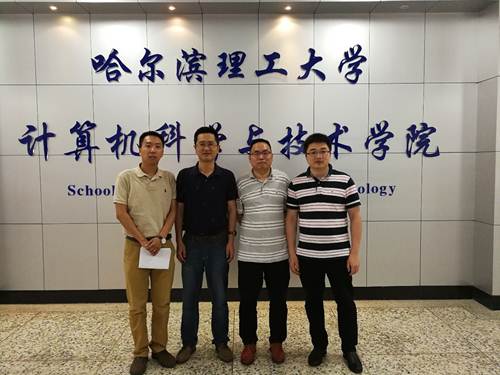
Reporters visiting the School of Computer Science and Technology
